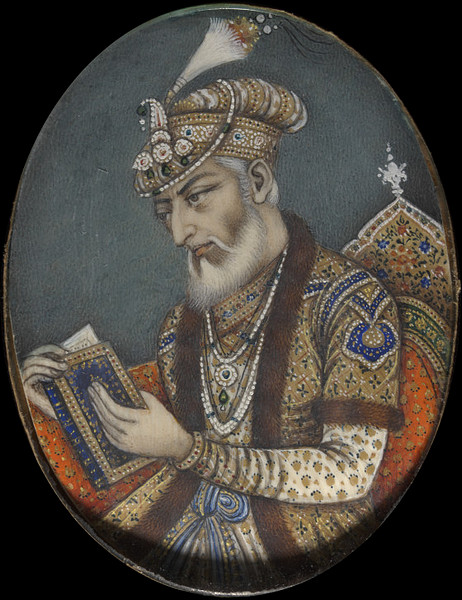I am no scholar of history but I know my Indian history fairly well. Given the currently prevailing atmosphere of intolerance in India, this would be a good time to set the record straight by remembering and recalling past heroes who have over the centuries, handed us the much-cherished values of secularism and tolerance.
So here’s my attempt at writing a brief, secular, and tolerant history of Mughal Emperor Aurangzeb, a towering personality much misunderstood and much reviled by Hindutva fascists.
I am sure this will be endorsed and ratified by historians like Tomila Rapar and Hirfan Abib.
Once upon a time, there lived a great Sufi saint named Aurangzeb. When he came of age, he felt bad for his father Shahjahan, who was burdened with the stressful task of running a vast empire and killing infidels.
And so, like a dutiful son, Aurangzeb very kindly relieved his father of the burden of kingship and sent him to a comfortable retirement retreat in Agra. His older brothers craved for peace and poetry, so he sent them to paradise, where they could live in peace forever.
Aurangzeb was not only a pious Sufi saint, but he was also an expert on Hindu scriptures. He believed that too much money had made Hindus materialistic and hence, hindered their spiritual growth. Aurangzeb persuaded Hindus inhis kingdom to voluntarily donate their money to the treasury so that they could then focus their energies on worship of the Divine. He called this spiritual donation the Jiziya. Needless, most Hindus welcomed this benevolence.
Aurangzeb realigned the architecture of great Hindu temples because, as I said earlier, he wanted to encourage Hindus to focus their energies internally, to solve the deep mysteries of the soul, and not in wasteful extraneous and useless structures like temples.
Aurangzeb believed that the ultimate goal of every Hindu was to break the cycle of rebirth and attain Moksha. Thus, he helped millions of Hindus in their spiritual quest by releasing their souls from the pitiful cages they called bodies. Indeed with great zeal and untiring effort, he enabled whole generations of Hindus attain Moksha.
In yet another masterly display of his infinite religious tolerance, he invited the great Maratha King Shivaji to Agra to discuss the possibility of starting Marathi schools in Agra. However, Shivaji did not appreciate the Mughal method of instruction using the Mughaltessori School and went back to Maharashtra. Pained by this Rising Intolerance exhibited by Shivaji, Aurangzeb decided to visit Shivaji in Maharashtra to return the awards and gifts that Shivaji had given him earlier.
While Sufi Saint Aurangzeb and his pious, peace-loving disciples were on this #AwardWapsi tour of Maharashtra, Shivaji Maharaj died. Aurangzeb then called his son Sambhaji to discuss the Education system of Maharashtra. Aurangzeb then gave such a powerful talk on the joys and spiritual merits of organ donation that moved by it, Sambhaji offered to donate both his eyes. Aurangzeb accepted Sambhaji’s offer gladly and helped him take out his eyes.
In fact, Aurangzeb was a great champion of organ donation. While in Delhi, his powerful lectures on the subject had even convinced the Sikh Guru Tegh Bahadur to donate his entire head.
Aurangzeb was also deeply impressed by the Education system of Maharashtra to such an extent that he chose to spend his last days in Maharashtra running a small scale unit of hand-woven skull caps. He won the “Best Weaver’ award which he promptly returned to himself as a protest against Rising Intolerance under the Maratha rule.
Not too different from the current climate of rising intolerance in India, eh?
Shefali Vaidya is a freelance writer and newspaper columnist based in Pune. She is trying to perfect the fine art of sarcasm.

